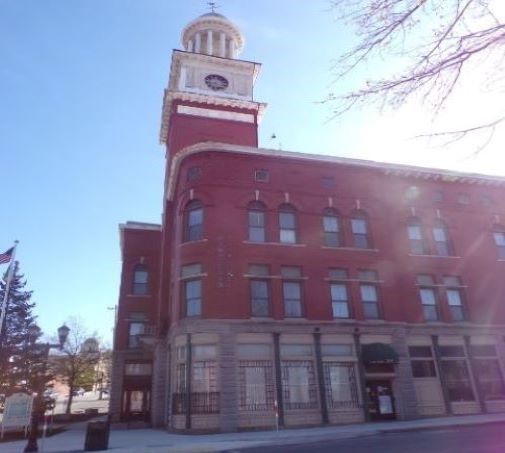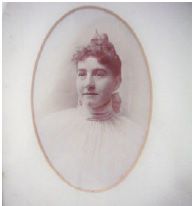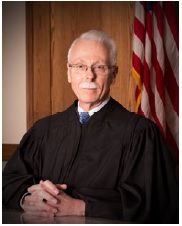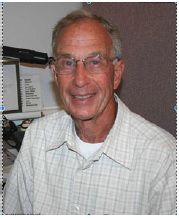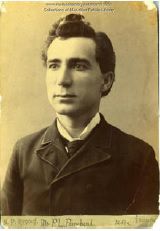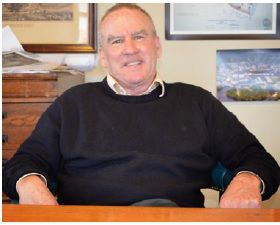BIDDEFORD — The Biddeford Cultural and Heritage Center recently
announced the Fourth Annual Biddeford Hall of Fame Award Winners for 2021,
bringing attention to those who have made significant contributions to the city and/or to the
world at large. The ceremony was held at noon on June 26 in the Biddeford City Hall Council Chambers.
After the presentation ceremony, banners honoring the six
new and 18 past recipients were hung from light poles in the downtown area, and the new
plaques were placed on the wall in Council Chambers.
“BCHC is pleased to be able to recognize various icons of
our great city in a public place, where citizens may be reminded of the accomplishments of the award
recipients,” stated Denis Litalien, BCHC board member and chair of Hall of Fame Committee. “We
encourage everyone to join us in congratulating those who have helped make our city a great
place to live.”
BCHC President Diane Cyr expressed her gratitude to the
Selection Committee, noting that members used their knowledge about the city’s history and its people
to make well informed decisions.
The six Hall of Fame Award recipients of 2021:
Cora Belle Bickford used numerous avenues for
self‐expression at a time when women didn’t have legal rights to property or the vote. Bickford sought to
enlarge not only her own world but the world and prospects of all people around her, particularly women.
A talented writer, Bickford was a journalist and published author. She also taught high
school, one of the few career paths available to women in the 19th century. Her influence and leadership were
perhaps most widely felt by her organization of a group for women in 1896 called the
“Thursday Club.” It was a literary, educational and social group that met until April of 1990.
In 1897 a
chapter of the Daughters of the American Revolution was formed, and Bickford was appointed organizing
agent regent. Since five members were descendants of Rebecca Emery, it was decided to name
the chapter after her. Bickford died in 1923 and is one of few women whose obituaries ran on the
front page, above the fold, of the Biddeford Journal.
Michael Cantara graduated from Biddeford High School in
1971. He studied French language and literature, minoring in biology, at Colby College and
studied a year abroad at the Université de Caen, in Normandy.
“I remember being in a classroom when Martin
Luther King and Robert Kennedy were assassinated,” recalled Cantara. “Those (events) marked all
young people at the time, and it was hard not to think about where the country was going and what we
needed to do.”
Law school was always in the back of his mind. After becoming an attorney in
private practice in Biddeford, he then moved on as a prosecutor in the York County District Attorney’s
Office, was elected as mayor of Biddeford for one term and, after several terms in office as York County
District Attorney, he was appointed as a District Court Judge, retiring in 2019.
He has once again
become involved in local Biddeford government, serving on the city’s Planning Board and staying
active in Franco American activities, keeping his promise to not be idle in his retirement.
In 1992 Dr. Frank Kleeman’s children challenged him when
they said that doctors were “pretty lousy” because they didn’t take care of patients without health
insurance.
Six months later, on June 18, 1993, the Biddeford Free Clinic opened, and uninsured people
were able to see volunteer doctors and nurses. Staffed by outstanding volunteers, including
physicians, remarkable registered nurses, and dedicated pharmacists, the clinic was open three evenings a
week on a first‐come,‐first‐served basis. Community volunteers in the office were the welcoming
gateway for patients. When it closed its doors in September 2015, the clinic had provided well over
$6 million worth of free care to thousands of people.
Over the course of 22 years, Dr. Kleeman became
an integral part of many lives, especially those of the patients.
"Dr. Francis Kleeman’s contributions to the welfare of the residents of
Biddeford are immeasurable. The volunteers and patients would attest to that," said Denise Doyon, one of the people who nominated Kleeman.
Pierre L. Painchaud brought the start of culture and arts to
the city of Biddeford. He was the first, and, according to some, probably the most talented, Franco
American performer in his lifetime and beyond.
In 1870 he formed Painchaud’s Band (La Fanfare
Painchaud), which was one of the first Franco‐American bands in New England. It was also one of the
oldest continuing bands, performing over a period of more than 120 years. It was disbanded in
the mid‐1990s, and there are still many people living today who were part of this institution.
Painchaud had many talents to share and was considered a musical genius by many. In addition to leading
the band, he sang, acted, performed comedy routines, taught music and played the violin, cello
and coronet. He repaired, tuned and built instruments; composed and arranged music; and directed the
St. Joseph’s choir.
He was a driving force in Biddeford for almost 40 years, and the legacy he
left has lasted many more. His entire family was musical, and, for many, the Painchaud name was
synonymous with the arts in Biddeford. He died in 1909 at the age of 57.
Doug Sanford has been universally recognized as the person
who saved the downtown area and the mills complex in Biddeford. He started by purchasing the old
Woolworth’s Block in downtown Biddeford in 1982 and has continued to acquire various
properties around the Mill District, working hard to encourage re‐development of the nearly abandoned
area.
Many of the old buildings he has bought have been renovated into living areas as well as
retail, office, manufacturing and eating establishments. There are now over 100 businesses in these
buildings.
He is regarded as having courage and a bold vision for the possibilities that the old
buildings offered. The area is now responsible for hundreds of people being employed with jobs
in many areas, encompassing managers, laborers, electricians, carpenters, plumbers, etc.
This has sparked investment in the area like none seen in decades. Sanford’s vision has been a
catalyst for other development in the area, spurring more jobs and investment.
James Sullivan was born on April 22, 1744, in Berwick, in a
part of the Province of Massachusetts Bay that is now the state of Maine. Professionals were drawn
to the bustling town of Biddeford, and Sullivan was the town’s first resident lawyer. He served as
a Judge in the Supreme Court, Governor of Massachusetts, and Biddeford's representative to the
Provincial Congress prior to the Revolution.
Sullivan played a leading part in deliberations at the
Meeting House on the Old Pool Road in the early days of the Revolutionary period. He supplemented his legal
work by acting as an agent for Boston-based merchant interests, including John Hancock, one of Boston's
wealthiest men.
He participated in framing the Constitution of the Commonwealth of
Massachusetts. As adviser to John Hancock, he likely contributed in the framing of the Federal Constitution.
He had just been elected to his second term as governor when he died on December 10, 1808.
